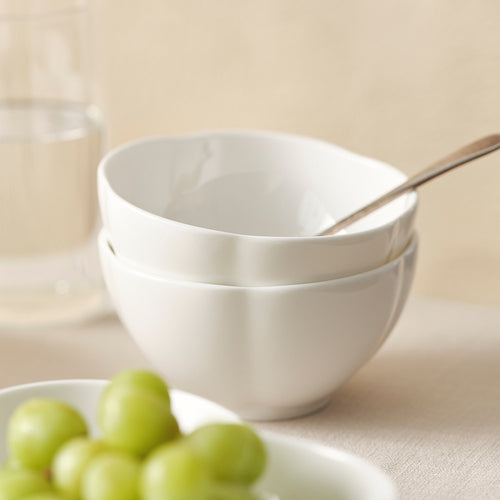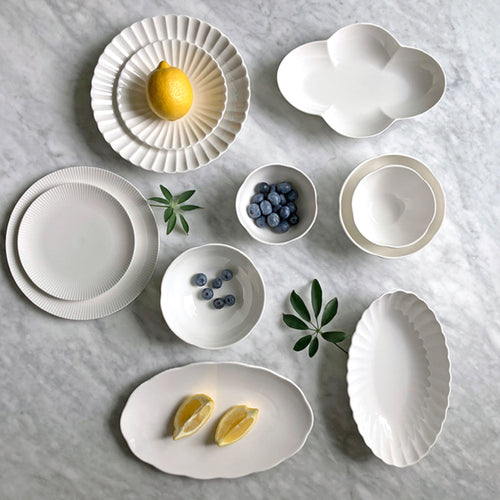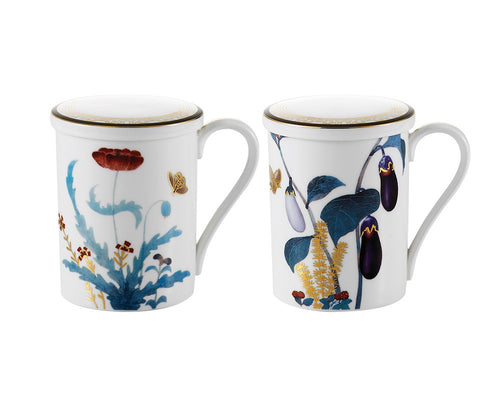![[Riedel] Bar Beer (Water Glass) - 2 Pack](http://hankookchinawareusa.com/cdn/shop/files/7515_riedel-bar-beer-glass-s-2_231201134541787_u30yawqim7g6ex7a.jpg?v=1739830850&width=1946)
[Riedel] Bar Beer (Water Glass) - 2 Pack
Pickup available at 1301 South Beach Boulevard
Usually ready in 24 hours
Summary
The Beer glass is perfect for revealing the colour, developing the aroma, and lengthening the palate of beers.
This tulip-shaped glass captures the full range of aromatics, dissipates excess carbonation, and helps to maintain a beer head.
This product is made of clear crystal glass.
Ouverture is RIEDEL’s entry level series for customers who appreciate a good wine in a great glass. Ouverture is a non-varietal specific collection of functional crystal glasses that will increase the owner‘s drinking pleasure of wine, beer and spirits.
This product is machine-made.
This item is dishwasher safe.
This pack contains 2 pieces.
Capacity 17.637 oz
Height 6.693 inch
Type of Manufacturing: machine-made
Material: Crystal

How to clean your glasses
Glasses shall always be cleaned carefully.
Most RIEDEL glasses are dishwasher-safe, and under good operating conditions can withstand 1000 wash cycles without any demonstrable loss of shine or clarity. The dishwasher resistance has been tested in accordance with EN 12875-1:2005 and EN 12875-2:2001.
RIEDEL glasses labelled "hand wash only" or "not dishwasher safe" or supplied in packaging that does not show or contain care/cleaning instructions are not dishwasher safe and require handwashing.
What to consider when loading the Dishwasher:
- When loading glasses into the dishwasher, make sure that there is enough space between the glasses so that they do not touch each other or other objects.
- If possible, place your glasses on the top shelf of the dishwasher and use the glass holder if your dishwasher has one. This holder is designed to secure your glasses so that they do not slip during the washing process. When loading, make sure that the glasses do not touch any other objects, such as metal utensils or cups. Place your glasses in a way that they do not come into contact with other racks or the spray arms.
- Certain RIEDEL glasses may be too high to fit in the top rack of the dishwasher. If your dishwasher has a special glassware program, you can carefully place such glasses in the bottom rack, following the instructions above. Otherwise, they should be cleaned by hand.
- If available, you should use the stem holder in the dishwasher as such holder supports the glasses and prevents them from shifting.
- To avoid scratches: Avoid contact of glass with other glass or metal.
Setting the Dishwasher:
- Dosage: Dose the detergent and rinse aid according to the instructions; do not overdose. Please ensure that your dishwasher is always sufficiently filled with rinse aid.
- Water softening: Extremely soft water attacks the glass. The dishwasher's water softening system shall therefore be matched to the hardness of your household water and should correspond to a value of approx. 3-4 degrees German hardness (°dH). Please ensure that your dishwasher is always sufficiently filled with dishwasher salt.
- Temperature and program selection: When washing glassware you should select a low temperature program (50-55 °C) or, if available, a special glass program.
- Steam: After washing, it is important to open the dishwasher door (if this does not happen automatically anyway) to allow moisture to evaporate, as water steam can attack the glass surface and increase glass corrosion.
- Food residues and fruit juices: Large quantities of food residues and/or fruit acids, such as those contained in juices, can affect the composition of the rinsing liquid and therefore the quality of the rinsing process. It is therefore advisable to pre-rinse such soiled items by hand.
- The joint washing of glass and aluminum household utensils (e.g. garlic press, pots with aluminum handles, etc.) shall be avoided by all means, as this leads to chemical reactions between the aluminum and the glass surface, which inevitably lead to glass corrosion within a very short time.
Hand Washing and Hand drying/polishing:
- If you wash your glass by hand, clean it carefully under warm water (use washing liquid and rinse the glass gently). Please ensure that you do not use excessively hot or boiling water for rinsing.
- To avoid detergent residues, rinse the glasses thoroughly with clear water.
- Use two large microfiber drying cloths to dry and polish the glass.
- Never hold the base plate and the bowl at the same time when drying or polishing the glass, as this can cause the stem to break due to twisting.
- To polish the bowl, first hold the glass with a drying cloth directly under the bowl with one hand or place the bowl in one hand and carefully polish the inside and outside of the bowl with the other hand using the second drying cloth.
- To polish the base plate, hold it firmly with one hand and polish it carefully with the other hand.
- Avoid drying your glasses upside down on a metal rack, as this could damage the rim.
- Do not use a tea towel for drying or polishing as this could damage your glass, instead use two microfiber polishing cloths.
- We recommend using RIEDEL microfiber polishing cloths, which dry easily and polish lint-free when washed correctly (see below).
- Wash polishing cloths at a high temperature of 60°C/140°F (to kill bacteria) with odorless soap.
- Do not use fabric softener when washing your microfiber polishing cloths (to avoid a greasy film on the glass surface).
- Attention: Microfiber polishing cloths shall not be put in the tumble dryer.
Storage:
Avoid storing glasses in kitchen cupboards next to strong smelling items, as the glass can absorb this odor, which can affect the aroma of the wine.
Preventing Glass Clouding:
Glass is a material that delights the observer with its shine and clarity. However, these characteristics trigger the visibility of glass surface damages, even if it is only minimal. For example, a permanent clouding of a glass is already clearly visible, if the glass is affected at a depth that is a thousand times thinner than 1 mm. In principle, all glasses are subject to this optical change process over time. The cause of the clouding is often difficult to trace, however, surface damages can be counteracted by machine rinsing.
The clouding of glassware in the dishwasher can have two different causes.
In many cases, the clouding is due to deposits of limescale or detergent residues. These can be easily removed with mild acids (e.g. citric acid or white vinegar).
The situation is different with glass corrosion, where components are washed out of the glass and the structure of the glass changes, which appears as a white coating on the glass. Unfortunately, it is not possible to reverse or repair glass corrosion.
In addition to the recommendations for washing glassware in the dishwasher or by hand, you should always make sure to rinse the glasses immediately after use so that no beverage/wine residue can build up. Red wine is particularly powerful as the acidity will attack the glass if residues remain too long.



![[The Royal] 25-Piece Dinner set, Serving for 4 - HANKOOK](http://hankookchinawareusa.com/cdn/shop/products/THE_ROYAL_DINNER_SET__56935.jpg?v=1753595467&width=500)


![[Riedel] Bar Beer (Water Glass) - 2 Pack](http://hankookchinawareusa.com/cdn/shop/files/640800011_thumbnail-F4r82e6t.jpg?v=1739830713&width=1946)
![[Riedel] Bar Beer (Water Glass) - 2 Pack](http://hankookchinawareusa.com/cdn/shop/files/640800011_w-8dLOPH42.jpg?v=1739830716&width=1946)
![[Riedel] Bar Beer (Water Glass) - 2 Pack](http://hankookchinawareusa.com/cdn/shop/files/640800011_dimension-bM7LOw3t.jpg?v=1739830724&width=1946)
![[Riedel] Bar Beer (Water Glass) - 2 Pack](http://hankookchinawareusa.com/cdn/shop/files/640800011_packaging-hnWc37Jl.jpg?v=1739830731&width=1946)